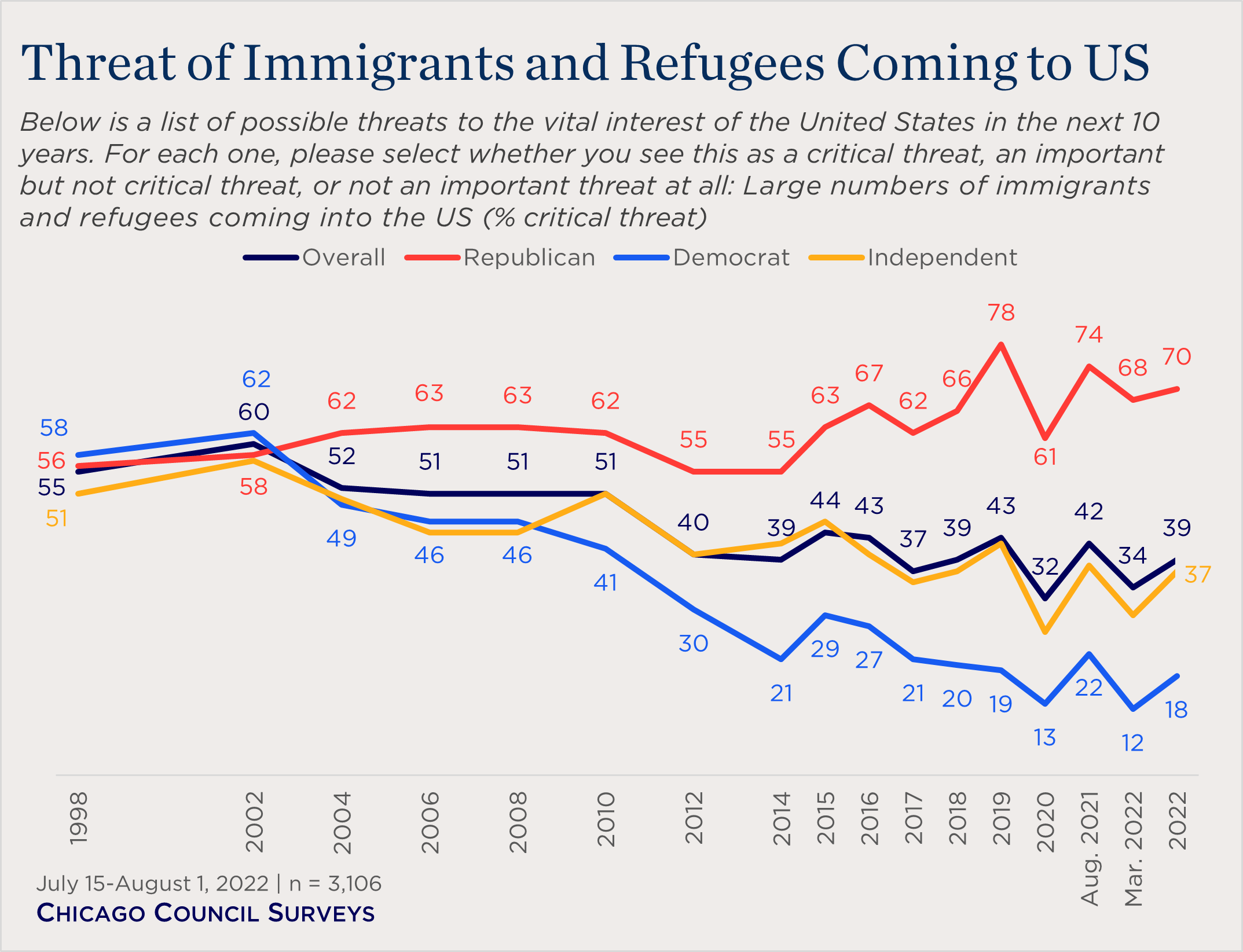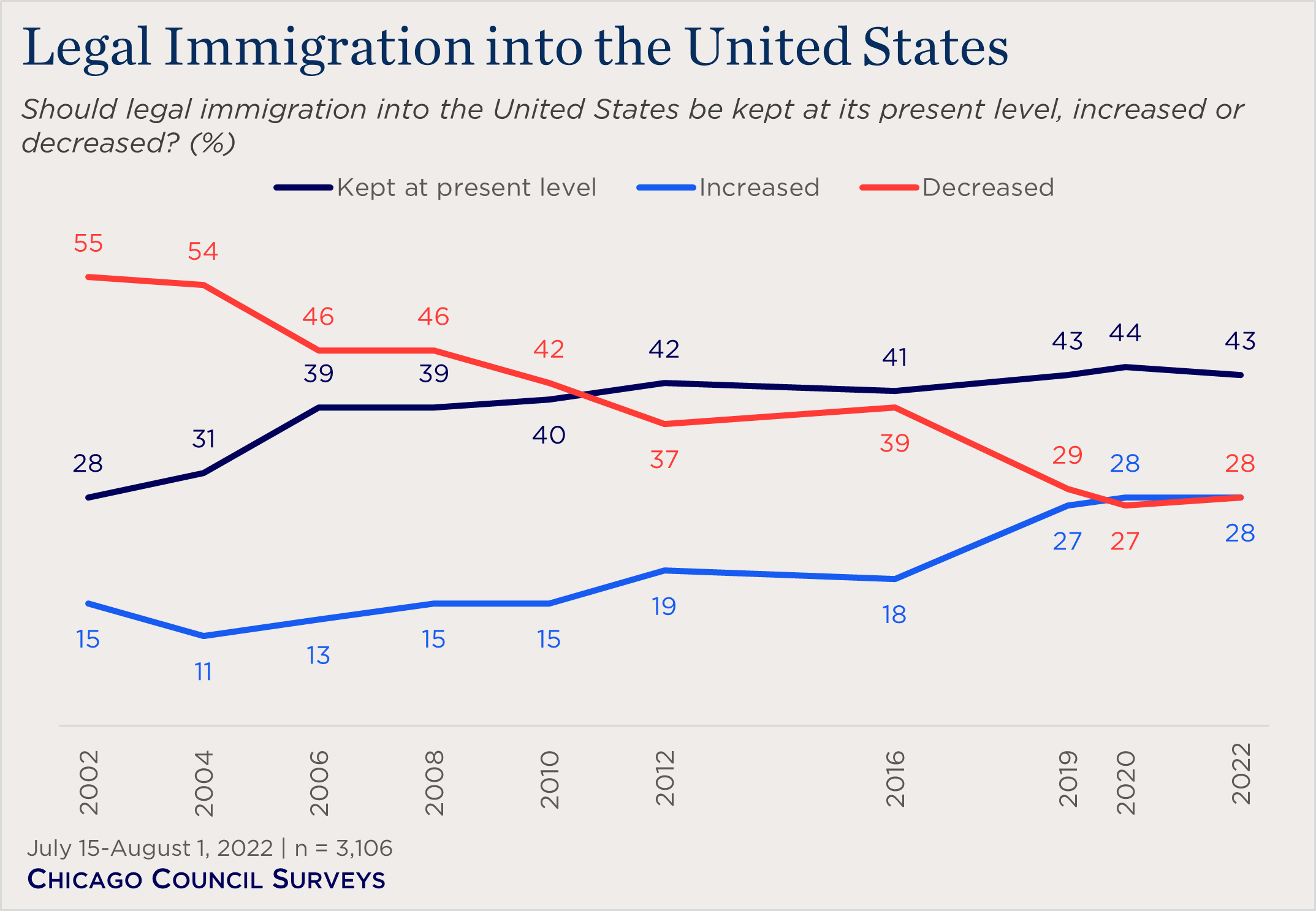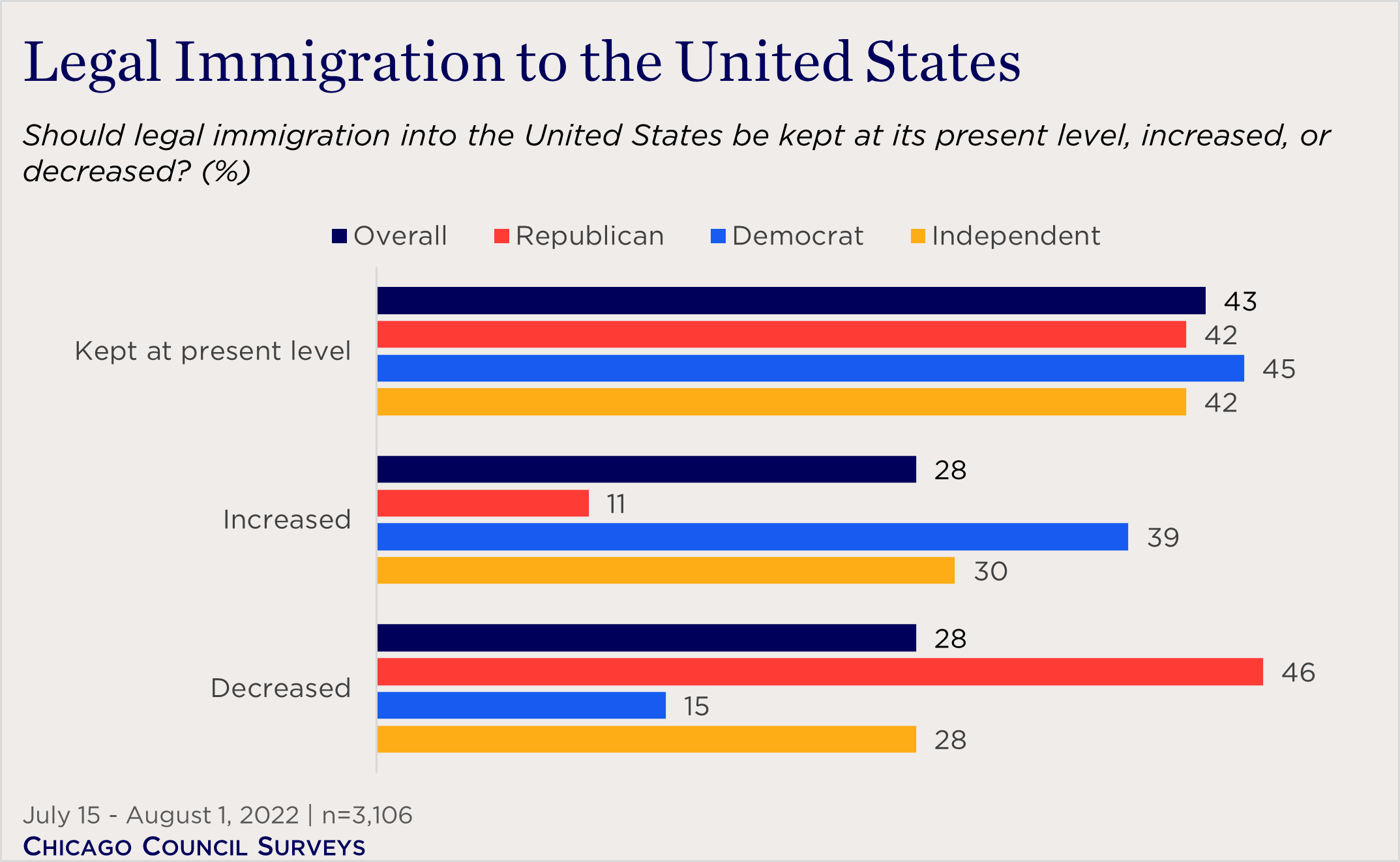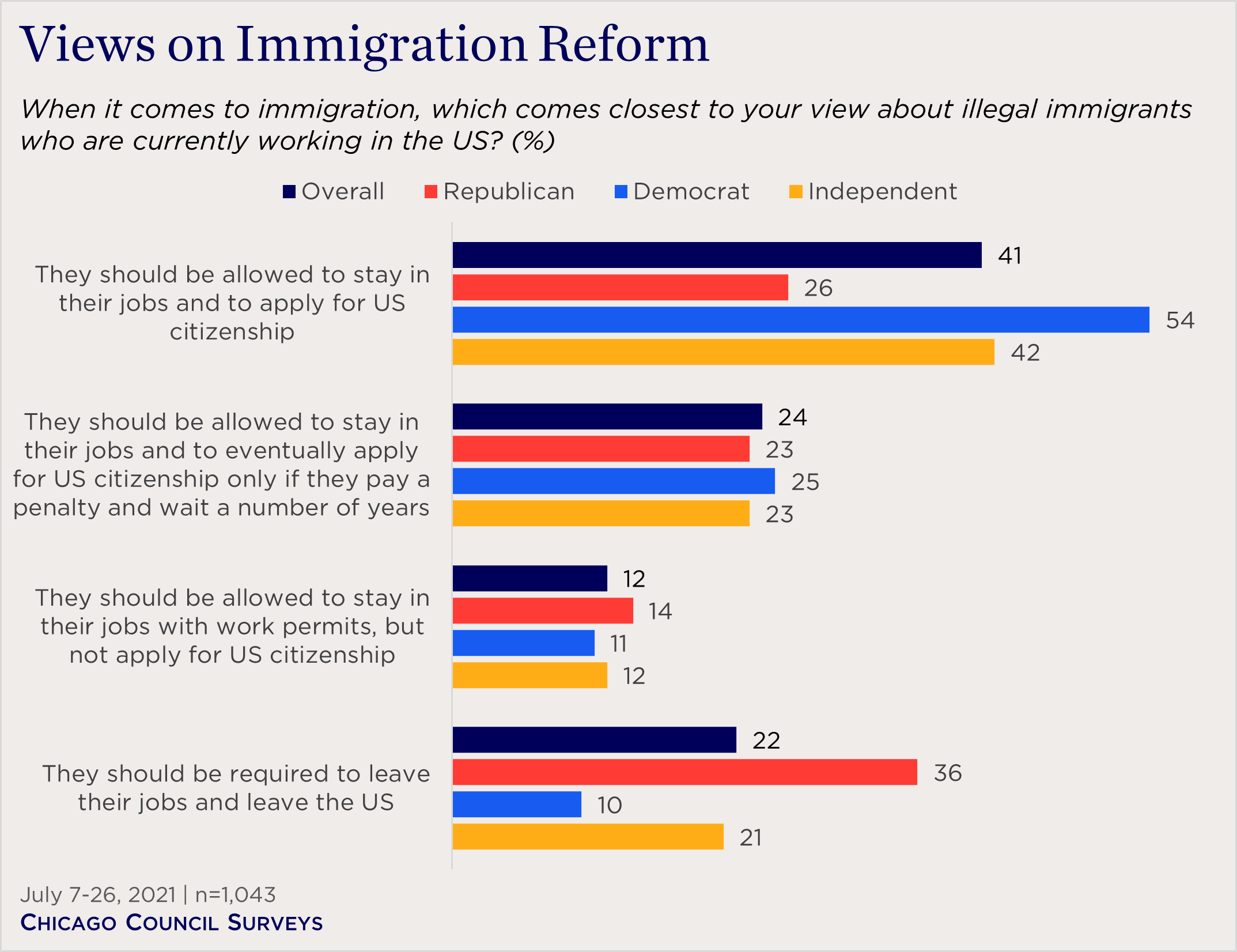But American concern about large numbers of immigrants and refugees coming into the country has steadily decreased over the past decades.
Key Findings
- Most Republicans (70%)—but few Democrats (18%)—say that large numbers of immigrants and refugees coming into the country represent a critical threat to the United States.
- A plurality of Americans (43%) say that legal immigration levels should be kept as they are, while 28 percent each favor increasing or decreasing those levels.
- Democrats are more likely to favor increasing legal immigration (39%), while Republicans are more likely to favor decreasing it (46%).
Yawning Partisan Gap on Threat of Large-Scale Migration
Over the past decades, American concern over the prospect of large numbers of immigrants and refugees coming into the country has steadily decreased. Today, four in 10 Americans (39%) see it as critical threat to the United States, down from a high of 60 percent in 2002.
That decline has been driven primarily by changing views among Democrats and Independents. When the Council first asked this question in 1998, majorities of both parties viewed the prospect of large numbers of immigrants and refugees entering the US as a critical threat. Over the past 24 years, Republicans and Democrats have diverged on this question. Today, 70 percent of Republicans view immigration as a critical threat, but just 37 percent of Independents and 18 percent of Democrats say the same—a gap of more than 50 percentage points.

Rising Support for Legal Immigration—with Deep Partisan Divisions
Over the past 20 years, Americans have become more likely to support maintaining or increasing levels of legal immigration, and less likely to say that the United States should decrease those levels. Today, the public is squarely divided over the level of legal immigration that should be allowed into the United States. A plurality (43%) say that legal immigration levels should be kept as they are, while 28 percent each favor increasing or decreasing those levels.

Republicans and Democrats are sharply split over the amount of legal immigration that should occur. Nearly half of Republicans (46%) say that legal immigration should be decreased, a position shared by 28 percent of Independents and few Democrats (15%). By contrast, four in 10 Democrats (39%) say legal immigration should be increased, as do 30 percent of Independents and just one in 10 Republicans (11%).

Agreement on Allowing Undocumented Immigrants to Stay—but Divided on a Path to Citizenship
As the 2021 Chicago Council Survey found, these partisan divisions also hold when it comes to one of the central questions of immigration reform: how the United States should handle the millions of undocumented immigrants living and working in the country. Overall, most Americans support allowing these immigrants to stay in the United States. Two-thirds (65%) favor allowing them to pursue US citizenship, either immediately (41%) or after a waiting period and paying a penalty (24%). Relatively few (22%) want to expel these immigrants from the United States. That’s true for both Republicans and Democrats: only a third of Republicans (36%) and just one in 10 Democrats (10%) favor expelling undocumented immigrants from the country.
Most Democrats favor a path to citizenship, either unconditionally (54%) or following a waiting period and penalty (25%). Republicans are more divided. Just under half (48%) support a way for undocumented immigrants to seek US citizenship, either immediately (26%) or following a penalty (23%), while an additional 14 percent favor allowing them to stay in the country with work permits but without a path to citizenship.



Methodology
This analysis is based on data from the 2022 Chicago Council Survey of the American public on foreign policy, a project of the Lester Crown Center on US Foreign Policy. The 2022 Chicago Council Survey was conducted July 15–August 1, 2022, by Ipsos using its large-scale nationwide online research panel, KnowledgePanel, in both English and Spanish among a weighted national sample of 3,106 adults 18 or older living in all 50 US states and the District of Columbia. The margin of sampling error for the full sample is +/- 1.8 percentage points. The margin of error is higher for partisan subgroups or for partial-sample items.
Partisan identification is based on how respondents answered a standard partisan self-identification question: “Generally speaking, do you think of yourself as a Republican, a Democrat, an Independent, or what?”
The 2022 Chicago Council Survey is made possible by the generous support of the Crown family and the Korea Foundation.

Related Content
 Public Opinion
Public Opinion
Despite majority approval among Democratic public, congressional Democrats struggle to pass immigration reform.
 Public Opinion
Public Opinion
Republicans see immigration as a critical threat to the country, say restricting immigration makes the US safer, and support using US troops to stop migrants from crossing into the United States. Democrats, on the other hand, do not consider immigration a critical threat, and their views on policy actions substantially and consistently differ from Republicans.
 Global Politics
Global Politics
Brendan Helm and Craig Kafura examine President Joe Biden's immigration reform plans.

